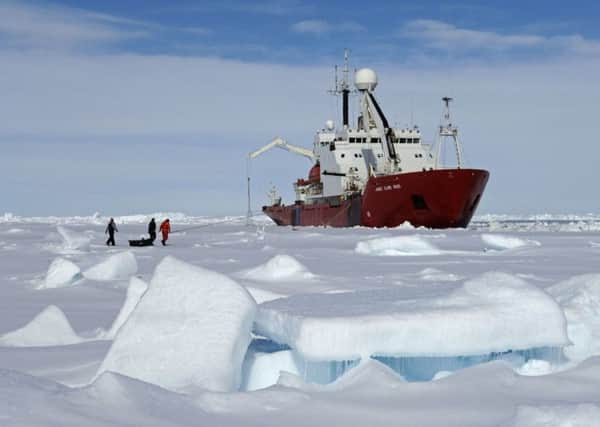Scots researchers lead expedition to study Arctic ocean ice


The aim of the £10 million mission is to gain new insights into the repercussions of rapid warming and the melting of sea ice in the polar region.
Researchers from the Scottish Association for Marine Science (Sams), based in Oban, are leading investigations alongside colleagues from the universities of Leeds and Liverpool. They are among more than 20 academics from 16 UK institutions who will be on board the research ship James Clark Ross, which sets sail for a six-week voyage to the Barents Sea today.
Advertisement
Hide AdAdvertisement
Hide AdThey will employing cutting-edge technology to explore and analyse the icy depths.
Studies have shown the Arctic is the fastest warming oceanic region in the world, with experts warning the area could be free of sea ice in summer within a few decades.
As well as thinning and retreat of sea ice, evidence shows species are migrating to the Arctic that normally live at more southerly latitudes.
These changes are likely to have a major impact on how the ecosystem operates, with knock-on effects on the UK climate and economy.
The work is part of international efforts to build a comprehensive picture of the changing Arctic environment.
They will look at a wide range of complex interactions in the ocean and at the seafloor.
Robotic underwater vehicles will collect data, while samples of plankton and other important food sources for marine wildlife will also be collected.
Advertisement
Hide AdAdvertisement
Hide AdStudies will analyse the relationship between ice, ocean, nutrients and biological communities during the transition from the dark Arctic winter to the sunlit Arctic summer.
Professor Finlo Cottier, who is based at Sams, said: “We’ll be making use of UK capabilities in robotics and working on UK and Norwegian research ships to make sustained observations of important processes in the Barents Sea.
“The international angle is essential to achieve world-leading science in the Arctic.”
The ship’s principal scientific officer, Dr Jo Hopkins, from the National Oceanography Centre, said: “This is an exciting and ambitious first research expedition that will collect a vast amount of information about Arctic water and sediments and the life they support. Improving our understanding of how the Arctic ecosystem functions today will help us better predict and manage how it may change in the future.”